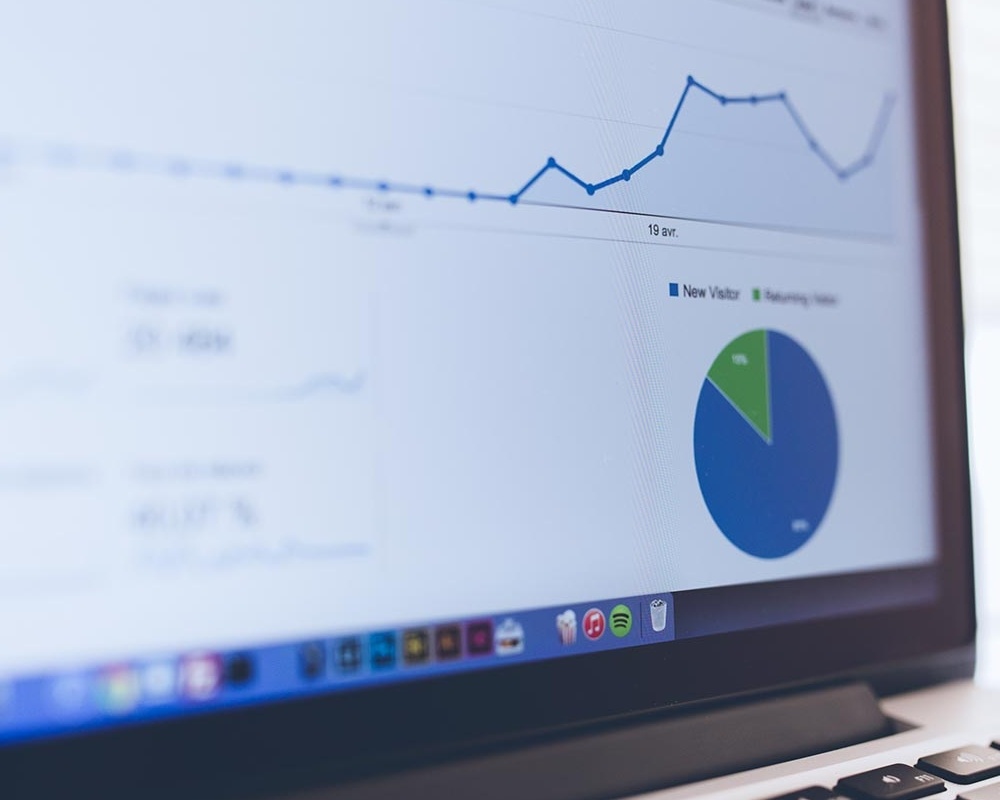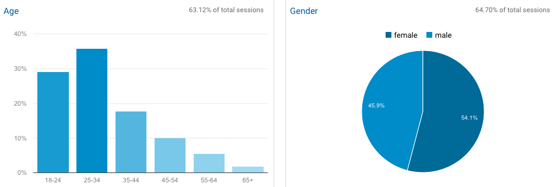
4 Ways to Use Google Analytics in Your Next Strategic Planning Session
Developing a marketing plan with data rather than intuition allows you to learn more about your target audience, understand what content and resources are driving these visitors through your website, and identify how to continue earning business from this audience. The most widely used tool across all websites to gain this data is Google Analytics. Google Analytics allows you to measure the right metrics, according to your business, and use these metrics to form future marketing strategies, objectives, and tactics.
Here, we’ll discuss four unique ways to use Google Analytics for your next planning session.
1. Audience
Is the audience you’re targeting arriving to your website? If you have a few personas you’re targeting, you can reference the Audience section of Google Analytics to confirm these visitors are finding your brand. A specific demographic sending large amounts of traffic that do not align with your target audiences signal red flags related to the types of ads you’re running or content provided.

It’s also important to pay attention to how the personas are finding you. If persona, Bubbly Beatrice just visits your website through Display ads and only spends 10 seconds on the site, are you missing an opportunity to target her through other platforms that could engage her more? Or, as she turns to search engines, is your site organically ranking on the second page of Google leaving Bubbly Beatrice to find a competitor ranking on the first page instead?
Understanding who is visiting your site and how they are arriving could identify areas for improvement for future marketing plans based on the brands goals.
2. Seasonality
Most businesses recognize their peak season as a specific time of year. You may already know your seasonality, but does the data match those insights? This information can support reasons to launch paid search campaigns or commercials throughout the year. Data could be telling you the peak season ends earlier than expected, which may prove ads are running too long and you’re spending money when your target audience is not searching for you. Paid search is a good channel to test with, where you can quickly identify whether or not the same ads that were working in your peak season are not working in your off season. Therefore, you could either test new ad copy, or ramp up your SEO efforts to ensure users can still find you in your “off” seaon, but would essentially be free traffic. Ramping up SEO efforts in your off season is always a good idea to improve your website (content, user experience, search engine crawlability) before the next peak season.

3. Content
Of the content (blogs, webinars, videos, infographics, etc) your company posts, identifying the most and least successful outline content to create in the future and how to disseminate it based on understanding your target audience and seasonality. To define content as successful, check out metrics such as sessions, time spent on page, bounce rate, inbound links, content shared via social media, and the number of conversions. A thorough content plan will help you reach the right people at the right time.
4. Conversions
Unique to your website, you’ll likely drive users towards specific call-to-actions (CTAs). Whether these are performing or underperforming, the answer likely lies within Google Analytics data. Of those interacting with the CTAs and converting into a lead, how many are quality leads? In your peak season, is your target audience interacting with your content and ultimately converting? If yes, congratulations, you know your users well! If not, what is it you can do to change this pattern. Narrow your future strategies, objectives and tactics to reflect how the business can increase quality leads from your target audience.
I know, I know, there’s so many ways to look at and understand data. However, if you truly spend the time to understand the above 4 ways to use Google Analytics in your own business planning sessions, you’ll be thanking yourself in the future when looking at the success of your online brand.
You’re welcome.








